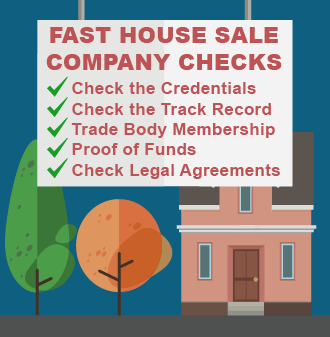What is Gazundering?
 Gazundering is where a homebuyer effectively drops the previously offered price, often at the last minute.
Gazundering is where a homebuyer effectively drops the previously offered price, often at the last minute.
You may have heard of the term ‘gazumping’, where a property seller breaks a promise with a buyer and decides to move forward with a higher offer.
An opposite situation can sometimes happen where the buyer (directly or indirectly) forces the seller to accept a lower price.
Gazundering often occurs just before exchange of contracts, when the seller may not have much of a choice but to go ahead.
Although there is no real evidence of how often this goes on, it’s generally more common when the market is slow.
For example, you may find buyers attributing the coronavirus (COVID-19) or Brexit for decreasing their price.
In your local market, if there is less demand and you need to sell fast, it’s easier to fall prey to this tactic.
There have also been several reported incidences in the quick house sale industry. This is because companies in our industry know when sellers are facing complex situations. A handful of firms use this knowledge to take advantage and drop the price at the last minute.
Yet, whilst completely disgraceful, the practice is not illegal and therefore continues…
Can gazundering ever be justified?
In most cases, no…
Gazundering can come down to people getting cold feet. It’s sometimes easy to get caught up in the heat of the moment when buying a home and make a rash decision. Perhaps, then, the market starts to drop or other concerns start to appear and buyers change their mind.
Yet, although it’s natural to have concerns, it’s never fair to string a seller along with no reason other than to chip the price down.
In such situations, the decent thing to do is to provide enough time for the seller to deal with the situation (before the conveyancing process starts). They can then quickly put the house back on the market, hopefully without other buyers noticing.
However, there are some cases where gazundering may be reasonably acceptable…
People may have had suffered the same fate with their own house sale – meaning they must lower their buying price to proceed. Rare, but it does happen.
Or, perhaps the seller has been dishonest or not revealed particular facts about the property. These often get revealed at the point of survey.
We’ve also heard of cases where the solicitor has not undertaken the conveyancing processes correctly. This has meant the buyer is unaware of a potentially costly issue to resolve and asks for an appropriate discount. It’s perhaps easier to sympathise with the buyer’s position in such scenarios.
How to Deal with Gazundering
 If you’re selling your house at auction, it’s practically impossible for gazundering to happen as contracts are exchanged irreversibly once the hammer has fallen.
If you’re selling your house at auction, it’s practically impossible for gazundering to happen as contracts are exchanged irreversibly once the hammer has fallen.
Operating in a similar space, we buy any house companies like ourselves have too much to lose by engaging in such practices. See the next section to make sure you find the right type of organisation to work with if you’re considering this route.
However – when selling through an estate agent – the following may help:
1. Counter-offer – fight fire with fire!
If your back is against the wall and you’re forced to move forward with the sale, remember to negotiate hard.
In no way should you accept the first ‘gazundered’ price given to you.
Remember that they would have spent a decent amount money on surveys and legals.
Most want the sale to happen just as much as you do.
1. Work with an experienced solicitor
Conveyancers who have worked in the industry for a long time usually know every trick in the book. The good ones will know exactly how to handle the situation and communicate with the buyer’s legal representative.
They’ll also have a sense of when a buyer could act in bad faith and stop the process early in its tracks.
Remember to check that the firm is registered on the Solicitors Regulation Authority (SRA) and/or the Law Society websites.
2. Work with a trustworthy estate agent
The agent should also be pro-active in dealing with the situation as they probably would have met the buyer.
Those that have been working in the industry for the while can discern between a serious and not-so-serious buyer. The estate agent should also find out as much as possible about the buyer’s position and relay this over to you.
For example, at our own express sale service, we always check that the buyer has a mortgage offer in place (often referred to as a ‘decision in principle’). If you’re uncomfortable, make sure you voice your opinion before proceeding.
3. Make sure your price isn’t too toppy
The more fairly your property is priced, the lower are your chances of getting gazundered. You can use our guide on how to value your house to help you in the right direction.
4. Be wary of over the asking price offers
If a buyer has made an offer over the asking price, be extra vigilant. Of course, it’s nothing to complain about but make sure they won’t start dropping the price as the sale progresses.
5. Avoiding a chain sale
Although it’s sometimes unavoidable, selling to a chain-free buyer has its advantages. They’ll usually be keen to move and have their finances in place to buy your house on the agreed date.
6. Make sure the buyer completes the survey as quickly as possible
This will iron out any issues that could lead to the buyer having second thoughts about moving forward. The earlier in the process, the better.
Speak to the estate agent about a backup plan
If there has been a lot of interest in your property, it’s sometimes worth speaking with the agent about a plan ‘b’ just in case things go wrong. For example, they may be able to get in touch with other potential buyers who can step in if necessary.
Establish a firm date for the sale
The longer things take, the higher the risk. Once you have filled in the relevant property information forms, the solicitors should get to work on the contracts. In the meantime, make sure that the buyer has a mortgage offer in place so you can set a firm exchange and completion dates. As long as everybody is on the same page, things usually move forward without any hitches.
Make regular checks
Good estate agents and solicitors should be regularly updating you on the sale’s progress (this is what you’re paying them for). Don’t be afraid to chase them up whenever you need.
Residential abortive transaction insurance
Although this policy won’t remove the hassles and stress of being gazundered, you’ll at least be covered for your legal and mortgage costs in such an event.
Be honest and don’t hide anything
If a buyer finds out that there were undisclosed issues with the property, then you shouldn’t be too surprised if things fall apart. If you’re not aware of any problems, then you should be mindful that the buyer still may request a discount. Of course, whether you wish to proceed or not is entirely up to you.
Choosing the Right Fast House Sale Company
 Some years back, the Office of Fair Trading (OFT) was heavily critical of fast house buying firms.
Some years back, the Office of Fair Trading (OFT) was heavily critical of fast house buying firms.
Warnings were sent that companies who take advantage of vendors in vulnerable situations could face serious repercussions – including prosecution.
The practice of gazundering was a major concern and, as a result, it’s unusual to hear of such practices occurring these days in our industry.
A quick house sale company that engages in such behaviour risks severe reputational damage and being struck off from the bodies that govern our industry. Above all, it’s simply a bad way to do business and genuinely unnecessary.
However, we are aware that the problem still happens – oftentimes under the radar.
If you’re ever gazundered by a quick house sale company, without justification, you should report the complaint to The Property Ombudsman (TPOS) on 01722 333306 or the National Association of Property Buyers on 01903 331329.
Below we’ve highlighted some of the main precautions you should take…
Check the Quick House Buyer’s Credentials
First off, visit the Companies House website. This government body has a wealth of information where you can even check the fast sale firm’s accounts. The Company Check website is also useful.
Note that it’s fairly normal practice for the quick house buyer to run separate companies. These are usually in the form of ‘special purpose vehicles’ (companies that buy individual properties). Other times, the buyer may use a separate trading or holding company. Either way, it’s a good idea to check all the details.
You can also request or download credit reports for yourself (from agencies like Experian or Check My File).
Remember to check the reviews, social media profiles and general online presence. LinkedIn is a good starting point alongside Facebook and Twitter. You can also check how old the company’s website is here.
Of course, it’s entirely up to you but we would generally suggest steering clear of ‘one-man band’ property buyers.
Fast House Buyer Track Record
You should ask for details about other sales the quick house buying company has completed on in recent times.
The serious firms will be able to show evidence of the houses they have bought in the form of completion statements from their solicitors.
Sell House Fast – Trade Body Membership
Although house buying and selling is not regulated with as much rigour as other financial services, there are a number of bodies out there that can help if things start to go wrong.
Quick house sale companies are not obliged to join these bodies, but it is generally considered to be good practice.
Property Solvers, for example, is a member of all the organisations in the image below…
Ask The Fast House Buyer for Proof of Funds
If you’re suspicious or remotely worried, ask for evidence of the property buyer firm’s funds. Although this doesn’t necessarily stop a price reduction at the last minute, there’s a lot to be said about transparency.
The quick house sale firm you’re dealing with should be able to show up-to-date bank statements and/or provide a letter from their solicitor.
Some may be using a pre-agreed finance facility of some sort which is fairly normal practice within the industry. However, you should check that there will be no delays and that the money is securely in place to buy your house on the agreed date.
Be Careful of Dubious Legal Agreements
You may find that some fast sale companies may discuss specific legal arrangements. Although there are various ways to structure transactions within the confines of the law, it’s important to check the small print.
For example, if you hear terms like ‘option agreement’ and ‘Land Registry restriction’, make sure you are fully aware of the implications. You don’t want to sign anything that could ultimately work against you.
Here at Property Solvers, for example, we sometimes discuss assisted sales with our clients. This may be an appropriate solution if there are underlying legal problems, the property is in negative equity or in need of an extensive programme of refurbishment works.
On this note, when using a fast house sale company, make sure there are no hidden charges. Your solicitor should flag these up for you.
Property Solvers Comments on Gazundering
 At the time of writing, nothing is firmly being done to stop gazundering in its tracks. Although there are occasionally legitimate reasons, it’s a practice that should be condemned by anyone working in the industry.
At the time of writing, nothing is firmly being done to stop gazundering in its tracks. Although there are occasionally legitimate reasons, it’s a practice that should be condemned by anyone working in the industry.
If you have fallen victim to a sudden price drop close to the point of completion, and you’re not in a major rush to sell, we would advise that you pull out. Although it means starting from square one, you’ll have the satisfaction of rejecting what is clearly foul play.
Yet, some commentators would say it’s rich for companies like ours to make such commentary. This is because our typical offers for homes are below the market value…
How We Work
For this reason, it’s worth explaining our side…
We are professional investor-buyers that are always clear about our position and offer prices for properties from the start.
We are in the ‘we buy any house’ business for the long-term. Engaging in underhanded behaviour makes little sense.
Below are some key facts which we hope will help you understand how we are different:
- We buy properties that require refurbishment works, have development potential or for long-term rental purposes;
- As a business, we must factor in a range of cost-factors including different tax rules, regulatory requirements, market risks etc.;
- We complete our quick cash sales in 7 to 28 days with no estate agency or legal fees to pay;
- There are ongoing maintenance / repair works, current / future refurbishments, void periods and other legal obligations that we must take account of;
- We ensure that all options have been explored. This includes adjusting the price with the estate agent, changing mortgage terms or renting out the property. Our staff would never force any homeowner to sell if we can see a viable alternative solution.
- We provide full clarification of our logic behind the purchase price;
- There’s no pressure to accept any offer we make (we are happy to provide free valuations if that’s all a client wants);
- We will not adjust our offer price bar exceptional circumstances. If clients do not disclose serious issues such as subsidence, flooding history, Japanese Knotweed etc. we may need to reevaluate the price. However, we have been buying homes for over 15 years and this has very rarely happened.
Express Sale Service
For those that have a bit more time on their hands, our express house sale service often works out to be a better option. Our modern tech-driven service aims to get our clients a firm offer in place within 28 days.
- High-quality property photos and floorplans (we won’t market your property unless you are 100% happy);
- Impactful ‘for sale’ board in front of your property;
- Access to all major property portals (see where we advertise);
- Accompanied viewings (including weekends);
- 24/7 enquiry line / chat service;
- Weekly sales performance reports;
- Complete sales progression and access to our panel of speedy solicitors;
- We operate on a no sale, no fee basis.
Please feel free to contact us 24/7 on 0800 044 3733 (freephone from your mobile), use our online chat (at the bottom right of the browser) or fill out our enquiry form.



